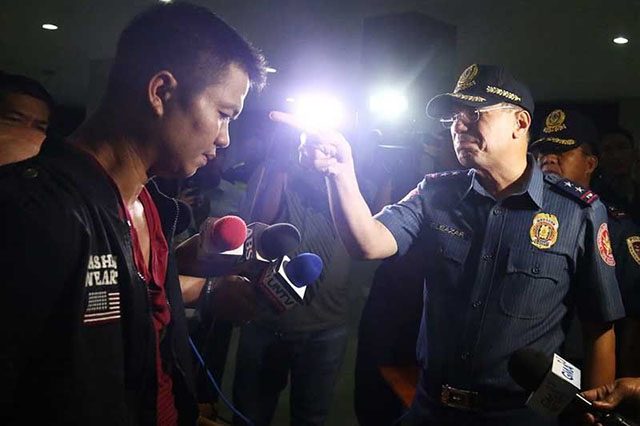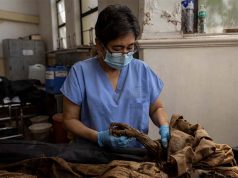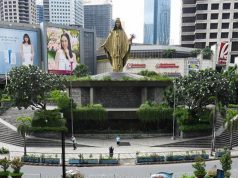
Director Guillermo Eleazar of the National Capital Region Office recently has a record of humiliating alleged rogue cops in public even if such actions may be violating ethical standards set for the Philippine National Police.
Eleazar came under fire over a video that showed him scolding, shaking and pulling the hair of Cpl. Marlo Quibete of the Eastern Police District who was arrested over allegedly extorting P200,000 from the partner of a drug suspect.
President Rodrigo Duterte, along with some lawmakers, approved of this as a way to discipline the police force and get rid of rogue cops.
Members of the Philippine National Police are expected to abide by policies and provisions stated in its Ethical Doctrine Manual.
In section 2 of the policy’s declaration, it is stated that
“They shall serve with utmost responsibility, integrity, morality, loyalty and efficiency with due respect to human rights and dignity as hallmark of a democratic society.”
The police’s code of conduct specifically requires police officers to respect the rights of all Filipinos.
“No member shall inflict, instigate or tolerate extra-judicial killings, arbitrary arrests, any act of torture or other cruel, inhuman or degrading treatment or punishment and shall not invoke superior orders or exceptional circumstances.”
They themselves should also “adhere to high standards of morality and decency and shall set good examples for others to follow.”
Moreover, they are expected to be humble public servants who perform their duties “without attracting attention or expecting the applause of others.”
Meanwhile, according to the Code of Conduct and Ethical Standards for Public Officials and Employees, public servants including police personnel and the military shall practice professionalism, justness and sincerity in the performance of their duties.
“They shall at all times respect the rights of others, and shall refrain from doing acts contrary to law, good morals, good customs, public policy, public order, public safety and public interest,” part of section 4 read.
Concerning the incident mentioned earlier, Eleazar said that he won’t apologize to Quibete because he deserved the public humiliation. However, he also requested the public to understand that he lost his temper that time.
“Hindi po ako magso-sorry sa mga ‘yan. Hindi ako magso-sorry sa mga tarantadong pulis. Humihingi ako ng paumanhin sa taong-bayan sa outrage na napakita ko, eh tao lang po,” the NCRPO chief said to GMA reporters.
In 2018, he also lost his temper over a rookie cop who purportedly raped a 15-year-old girl to free her parents who were arrested at a drug sting.
Last February, Eleazer confronted and reprimanded the Chinese student who threw taho at a police officer assigned at the MRT-3 Boni Station in front of reporters and other law enforcers.
The most recent was on March 8 when he berated another cop who was allegedly using and selling illegal drugs at his residence in Manila.
‘Not something to emulate’
While Duterte and some senator got Eleazar’s back, the Commission on Human Rights warned that other police personnel should not emulate such response to arrested suspects.
“However, much we understand the frustration of General Eleazar, we wouldn’t want this to also guide the work of other police officers kasi tinitingala siya at baka gayahin or baka mas malala in the next instance,” CHR spokesperson Jacqueline de Guia said.
“As much as possible, kung kakayanin na magtimpi, sana ay ipaubaya na lang sa korte ang pagpapataw ng parusa sa mga pulis kasi sabi nga natin, may karapatan din ang mga pulis,” she added.









